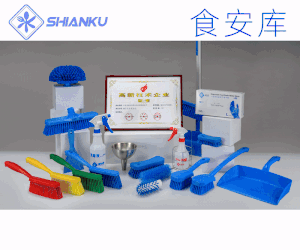食品伙伴網(wǎng)訊 2024年4月5日,據(jù)歐盟食品安全局(EFSA)消息,應(yīng)歐盟委員會要求,歐盟動物飼料添加劑和產(chǎn)品(FEEDAP)研究小組就谷氨酸棒桿菌CGMCC 20437發(fā)酵生產(chǎn)的L-異亮氨酸(l-isoleucine)作為所有動物飼料添加劑的安全性和有效性發(fā)表科學(xué)意見。
經(jīng)過評估,專家小組認(rèn)為該添加劑對目標(biāo)物種、消費者和環(huán)境是安全的。由于缺乏數(shù)據(jù),研究小組無法就該添加劑對皮膚或眼睛產(chǎn)生刺激的可能性得出結(jié)論。評估中的添加劑被認(rèn)為是非反芻動物物種氨基酸L-異亮氨酸的有效來源。為了使補充的L-異亮氨酸對反芻動物和非反芻動物同樣有效,需要防止其在瘤胃中降解。部分原文報道如下:
Following a request from the European Commission, EFSA was asked to deliver a scientific opinion on the safety and efficacy of l-isoleucine produced by fermentation with Corynebacterium glutamicum CGMCC 20437 as a nutritional feed additive for use in feed and in water for drinking for all animal species. The production strain is non-genetically modified, qualifies for the QPS approach to safety assessment when used for production purposes, is susceptible to the relevant antibiotics and contains no antimicrobial resistance genes of concern. No viable cells of the production strain were detected in the final product. The additive does not give rise to any safety concern regarding the production strain. l-Isoleucine produced by fermentation with Corynebacterium glutamicum CGMCC 20437 is considered safe for the target species, the consumer and the environment. Regarding the use in water, the EFSA Panel on Additives and Products or Substances used in Animal Feed (FEEDAP) reiterates its concerns over the safety for the target species of l-isoleucine administered simultaneously via water for drinking and feed owing to the risk of nutritional imbalances and hygienic reasons. In the absence of data, the FEEDAP Panel is not in a position to conclude on the potential of l-isoleucine produced by fermentation with Corynebacterium glutamicum CGMCC 20437 to be irritant to skin and/or eyes, or as a dermal sensitiser. Due to the high dusting potential, exposure by inhalation is likely. l-Isoleucine produced by fermentation with Corynebacterium glutamicum CGMCC 20437 is considered as an efficacious source of the essential amino acid l-isoleucine for non-ruminant animal species. For the supplemental l-isoleucine to be as efficacious in ruminants as in non-ruminant species, it would require protection against degradation in the rumen.
本文由食品伙伴網(wǎng)食品資訊中心編輯,有任何疑問,請聯(lián)系news@foodmate.net。
相關(guān)政策解讀











 地區(qū):
地區(qū):






 魯公網(wǎng)安備 37060202000128號
魯公網(wǎng)安備 37060202000128號



